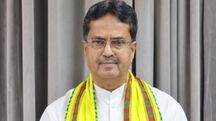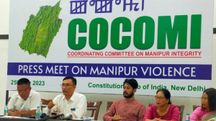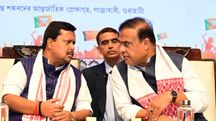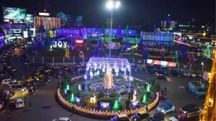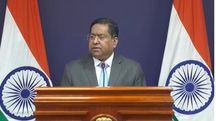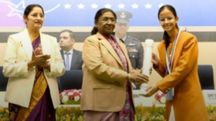An idea of the robust opposition: Pitfalls and expectations
The first session of the newly elected 18th parliament on June 24 will see a revamped opposition and treasury benches with a true NDA coalition led by BJP and increased opposition MPs from Congress, SP, TMC, and DMK.
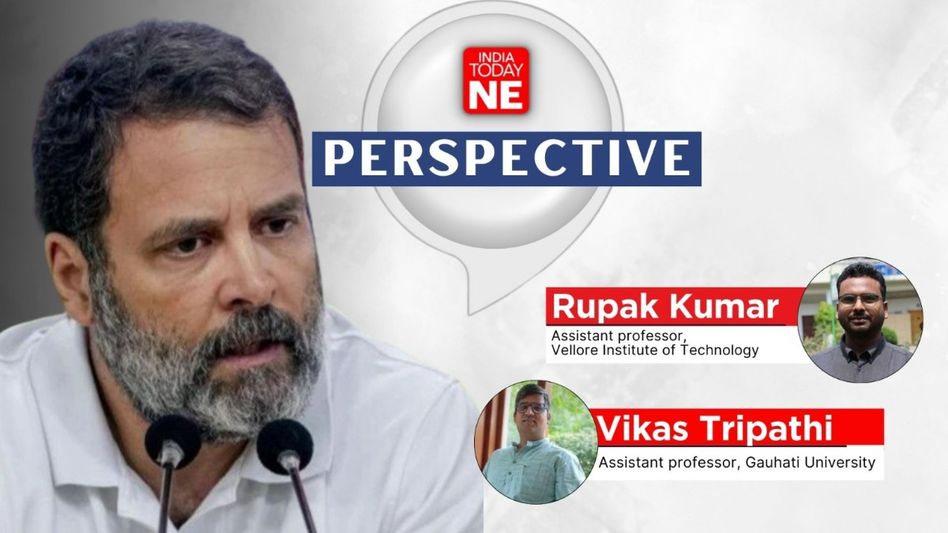
The first session of the newly elected 18th parliament will be convened on June 24. Unlike the previous ten years, this Lok Sabha will witness a revamped opposition and treasury benches, to say, the return of a true NDA coalition government led by the BJP and an increased number of MPs of the Opposition parties, specifically the Congress, Samajwadi Party, Trinamool Congress and the DMK. In this context, it was said that the Opposition is swinging back into action after the 2024 general election result was echoed. Commonsensically, the Opposition is often viewed merely as a ‘number game’ in the Lok Sabha (236 MPs in 2024).
Consequently, what perpetuates is a view that the effectiveness of the Opposition is directly proportional to their numbers rather than the functions. In this view, the opposition is only viewed by its instrumental significance vis-à-vis a government or dependency upon it. Such a charitable understanding of the Opposition compromises with the a priori knowledge of its existence and effectiveness in a democracy. The folly of this view leads to undue significance and primacy often assorted to the coalition government over a one-party majority government.
'Viewing the Opposition
The Opposition should rather be understood as a ‘process’ comprising ideology, leadership, governance, representation, parties and policy alternatives. The need is to understand the Opposition as autonomous of the governmental processes. Of course, there is a deep and intricate relationship between the two. But to understand the politics of the opposition through the gaze of the ruling parties or the government is deeply problematic. The predominant understanding is that a coalition government do not command an absolute majority, or one party does not have absolute control over the government’s business and will have to either go slow or take other stakeholders into confidence in the Parliament for legislation, therefore, Opposition parties will be taken seriously.
This process of nudging the Opposition back into primacy is deeply flawed and does not address the fundamental issue which is why the Opposition becomes (in)effective in the first place. The Opposition is the interface of politics, ideology, representation, and approach towards their role. How effectively the present parliamentary opposition curates their role in this respect will ensure the effectiveness in substantive manner.
Situating the Opposition
The Opposition’s politics is neither defined nor limited inside the Parliament but equally situated outside the parliament as well. Effectively, both the inside and outside aspects of the parliament contribute to the Opposition's effectiveness. The role played by the Opposition inside the parliament by invoking tools such as Question Hour, Zero Hour, Adjournment motion, Censure Motion, Committees, and JPCs is one of the aspects. Yes, to an extent this is dependent on the numbers. But the other aspects are primarily played outside the parliament- the politics, narratives, issues, agendas, leadership and politics of representation matter deeply in this aspect. Therefore, the hue and cry of the Opposition’s growing effectiveness is dependent on the outside factors and how they perform on these issues in the next five years.
|
|
Parties |
2024 |
2019 |
2014 |
|---|---|---|---|---|
|
Ruling Party/ies Strength (NDA) BJP has absolute majority in 2014 and 2019 consecutively. Coalition government in formed in 2024. |
BJP |
239 |
303 |
282 |
|
|
LJP |
5 |
6 |
6 |
|
|
JDU |
12 |
16 |
NA |
|
|
TDP (2024) |
16 |
NA |
16 |
|
|
Shiv Sena (2024) |
7 |
NA |
18 |
|
Opposition Party/ies Strength (acronym INDIA formed in 2023 as coalitional Opposition) |
Congress |
99 |
52 |
44 |
|
|
TMC |
29 |
22 |
34 |
|
|
SP |
38 |
5 |
5 |
|
|
RJD |
4 |
0 |
4 |
|
|
DMK |
22 |
24 |
0 |
|
|
Shiv Sena (UBT) |
9 |
NA |
NA |
|
|
NCP (SP) |
7 |
NA |
NA |
Table: Party wise strength in Lok Sabha after 2014 (Majority mark is 273 to form government in India)
As far as the role of the Opposition Inside the parliament is concerned- it primarily deals with three factors- one, making the executive accountable to the legislature as the former is collectively responsible to the parliament; two, ensuring that the debate and deliberation occupies the centrality in the House and committees; three, the Opposition’s presence is essential for governance imperatives as well.
Often a coalition government is supposed to be favourable for parliamentary opposition given the arrogance of the majority government in the parliament by not only bulldozing the legislation such as farm bills, bill to revoke article 370 and changing the status of Jammu & Kashmir to Union Territory, crippling the committees functioning, but even indiscriminately suspending the opposition parties MPs, for instance close to 150 Opposition MPs were suspended in 2023. Such highhandedness leads to frequent disruptions and reduces the parliament to merely a rubber stamp of the executive.
Such steps undermine the value of the parliamentary system as the Opposition is significant for democracy’s necessity. How do the Opposition and the government ensure that this necessity is optimally used for better institutionalisation of the parliament, and committees is the interplay of their relationship. The dynamics based on numbers limit the Opposition inside the parliament. However, between 2014 to 2024, despite the dilapidated number game inside the House, the Opposition was autonomous to raise the issues outside the parliament and to take these issues to the people.
Here, the role of party organisation, leadership, media, mass media and social media comes into play as they are the conveyor belt to inform the people about the politics of the ruling parties. This hampers the perspective of the Opposition politics as the reach of their programmes and plans between the elections are dependent on the networks and the organisational strength of the respective parties and of course, the crucial role played by social media such as YouTube, WhatsApp, X and Facebook. These aspects of the Opposition functioning must be viewed in the realm of realpolitik.
Impending Reforms
Apart from realpolitik, parliamentary reforms are overdue in India. The long-awaited reforms will push the Indian parliament ahead from its present nascent institutionalisation. It must be kept in mind that under no circumstances, any reforms which blatantly ignore the number game in the democracy will be accepted by the ruling parties. There is no need for such idealism. Parliaments are working effectively with the Speaker from the ruling parties in different parliamentary systems of the world. What is needed is to ensure that the post of the Speaker enjoys the confidence of the entire House along with autonomy in making a decision.
This is possible by implementing a closed ballot system in electing the Speaker from the majority party only, but all the MPs will vote using the Proportional Representation system. Similarly, the mode and method of selection of the various committees’ Chairman and their members must be replaced by election inside the House. ‘Consensus’ must not be a garb to suppress the parliamentarians’ wish to elect the Speaker of the House, Chairman and members of the various committees. Along with this, the Opposition must be given specific slots and days in which they have the autonomy to decide the issues and agendas they want to discuss in the House business.
This reform has the potential to reduce the disruptions exponentially. Most importantly, amendments must be brought in the Anti-Defection Law where MPs are autonomous to raise any matter and vote according to their mind unless there is a party Whip in passing budgetary provisions or No-Confidence Motion. Effectively speaking, unless a government’s stability or survival is at stake, all the MPs should not be subjected to the party whip. Moreover, public broadcasting of the standing and joint committee deliberations will help in penetrating the idea of discursive decision-making among the people, countries like the UK and, the US have already made all the committee deliberations public by televising the sessions.
Summing up, the Opposition in the 18th Lok Sabha must work on both fronts- inside and outside the parliament; simultaneously they must realise their indispensability as a democracy’s necessity and centrality in governance imperatives. Adding to these functional paraphernalia comes the structural significance of organisational strength and party building, the organic growth of leadership and cadres. The functional and structural aspects are complementary to each other, but the adhesive that holds together is the issue of representation and the ideological, programmatic and policy orientation of the opposition parties like the Congress, SP, TMC, DMK, RJD. They need to answer a basic question- what makes them distinct from the ruling party/ies?
How the opposition parties will put forth their ideological and representational claim to the people will substantively decide their effectiveness along with how they navigate through the issues of parliamentary legislation, government bills and committees.
Copyright©2025 Living Media India Limited. For reprint rights: Syndications Today

